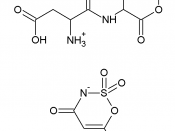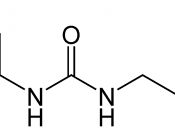Each year Americans spend millions on diet products. Fighting the ?battle of the bulge? has become part of people?s every day lives. The old saying: ? What you don?t know can?t hurt you.? doesn?t apply to food additives that are placed in diet foods. In the case of foreign substances being added to foods people need to be informed. It is required by law that all ingredients be listed on the label of all food products but many Americans do not know the harm that those unpronounceable added chemicals can cause to their health.
In order to appeal to dieters advertisers and marketing spent $1.1 billion dollars in 2000 to promote low calorie sweeteners (D?Amico E.L. ). The marketers targeted the age groups that are most susceptible to use artificial sweeteners to replace sugar in order to cut calories. The age groups the advertising was most directed toward was thirty-five to forty-four year olds and fifty to fifty-four year olds.
Two-fifths of each of these age groups stated that they have used artificial sweeteners to reduce their sugar intake. Women seem to be hit hardest by this marketing because of the urge to be thin. Mothers have also inadvertently given these sugar replacers to their children thinking that it is better for their teeth and will keep them calmer (?Artificial sweeteners point? E.L.).
Although aspartame and other artificial sweetener caused diseases aren?t reported doesn?t mean that they don?t happen. Many of times people may not report them because they are not aware that that is why they have developed the disease. People are not informed of the symptoms of aspartame related diseases (Gold ?Aspartame Sugar Sub.? E.L.).While artificial sweeteners have FDA approval they are harmful and can even be fatal.
In 1965 a chemist named James Schlatter discovered aspartame accidentally.


